Tragedy strikes. It hits like a bolt of lightning. He lifts you up off the floor and sends your heart into the pit of your stomach. We have all felt this at one time or another. If you haven’t, you will. Tragedy is a part of life. It is a never-ending, never ceasing part of the world. Some call it sin, some call it karma, and others do not really know what to make of it. There are natural disasters, systemic tragedies like slavery, or personal tragedies like the death of a child or the physical/emotional attack of a stranger. War is tragic. Miscarriages are tragic. Murder is tragic. Abuse of children is tragic. There is just so much sometimes that our hearts and minds cannot take it.
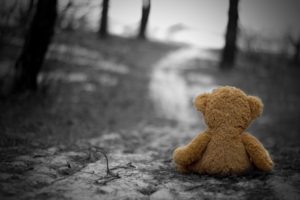
Every community deals with this. We all spend our lives trying to pretend that it doesn’t exist and trying to make sense of it when it does. In my community of Shreveport and Bossier, we have been slammed with tragedy in the last year. Probably no more than others, but due to the effects of social media, we are keenly aware of these tragedies. We have seen a wide array and a diverse population of victims. Tragedy doesn’t discriminate. It does not have political views or bias. It comes out of left field and smacks us across the face.
Tragedy brings up questions. Is God good? Is He real? Is our society going to hell in a hand basket? Am I safe? Am I lovable? Did I deserve this or do something to deserve it? Am I truly known by the people who have been closest to me or am I isolated and lost forever? I hear these questions in my office every day. I hear them whispered through tears and tissue. I hear them screamed into pillows and towards the heavens with clinched fists.
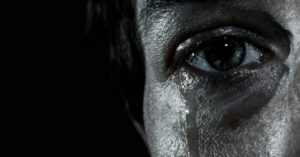
Now this may seem like quite the downer, quite the negative blog. There’s no doubt it’s heavy. The things that happen to us as individuals, groups, and communities are devastating. The good news is there is hope. There are ways to be resilient against tragedy. We can overcome loss, grief, and trauma.
One of the remedies is education. One of the cures is other people. Our healing is found in Christ Jesus, the Holy Spirit, and God the Father. The problem with these fixes is that they are in direct conflict with our brain’s chemistry and biological protective duties after tragedy. What I mean is that most tragedies, as listed above, originate from one of these sources. People or God. When tragedy happens, lets call it trauma, our brains are damaged. The things that we used to see as safe are no longer safe. If it was a person or a natural event that harmed you, then you will be afraid to be vulnerable with people or God.
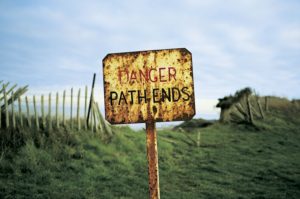
Your body will respond in fight or flight. You will have startle responses, avoidance of people, places, and things that remind you of the event or person. Imagine that you are walking down a path with your best friend. You hear rustling in the grass and a tiger jumps out and kills your friend. You narrowly escape. The next time you see tall grass or think about going for a walk what will happen? You will get anxious. You will move to the other side or in the opposite direction. Your body will respond with shakes, tension, the instinct to run or attack, you will sweat and clinch your teeth in fear or rage. The issue we have is that the tall grass did not kill our friend. It is just a reminder of the tiger or the real problem. These are all normal and natural responses to pain and to trauma, but focusing on the tall grass instead of the tiger keeps us stuck.

Another difficulty is that the same things that hurt us are the same things that can save us, and yet we are avoiding them like the tall grass. We think God did this to us or at the least allowed it to happen. We believe all men, women, parental figures, leaders, cars, back alleys, smells, sounds, that remind us of our trauma (the tiger) but they are really just a reminder (the tall grass). As a result, we continue to avoid the wrong things while ignoring the true issues.
Recently we had a couple in our community murdered because they gave a person a ride. I saw people post comments like “that’s what you get for doing good” or ” I will never give someone a ride again” or “well you know how those people are” or “that is why I do not give people rides.” These are all communal trauma responses. They make sense at face value, but they are not functional or rational in living life with other people or God.
Let me explain. The brain’s right and left hemispheres help us to survive and function in the world. The right brain is focused on music, art, feelings, intuition, and holistic thinking. The left brain’s function is facts, math, logic, and linear thinking. When trauma happens our prefrontal cortex, which helps these two parts connect and function together, stops connecting and working together. Our nervous system kicks and we go into fight or flight. We think irrationally and respond impulsively.
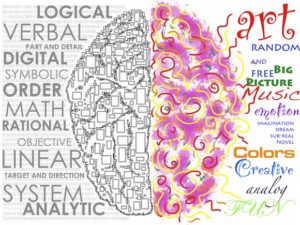
If we look at our culture and how we communicate around tragedy or trauma we see people reacting. Regardless of the topic like religion, race issues, sexism, gender issues, abortion, contraceptives, policing, or politics, all of these types of issues someone has a personal story or trauma or tragedy associated. This makes their view of the subject bias and usually their responses, if not previously worked through in a therapeutic environment, extreme or emotionally driven. This is because their/our brains are damaged, and we have not properly healed. We still see everything as tall grass or see it through the lens of danger. This type of response keeps us from seeing the human on the other end of the discussion, because our bodies and mind are self focused.
Let’s use the murder of the couple for example. How many people in Shreveport have given someone a ride in the last 10 years? How many couples have been murdered for doing so? Research would show a tiny amount. Yet our community response is to not give people rides anymore? Not to help those suffering or struggling? This is because we personalize things and overgeneralize things when tragedy happens in order to protect ourselves. This isolation in most cases is not necessary and counterproductive. Withdrawing makes us feel more depressed and anxious. It makes us see the world as scary and dangerous. None of these beliefs are based on facts or reasoning, because remember, our right brain has taken over and is damaged.
Why is this a problem? Well it is a problem because as individuals in a society, to be most helpful and healthy we must think rationally and respond appropriately. When we have community, support, intimate relationships, based on trust and reciprocity, we can more quickly overcome the tragedy or trauma that will inevitably come. When we step out of fight or flight we can have logical conversation with others and work together to identify issues and come up with solutions to our worlds problems.
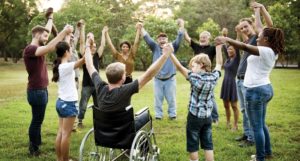
If we can acknowledge that God is good and that he is not the cause of all bad things, if we can work with another human to experience safety, validation of our feelings, and healing from our trauma, then we can begin to see the world as safe and ourselves as loved, cared for, and good enough.
The challenge that I want to issue is to focus on the real dangers. We have ignored the real issues such as crumbling family structures, divorce, pornography, addiction, obesity, mental health issues, that are destroying us by all research, statistical analysis, and if we are honest general observation. We do not see them as dangerous until they knock on our door. We must educate ourselves and prepare ourselves so that when tragedy strikes, we know who to turn to or what to do. Be prepared so we know what is happening so that we can be rational and helpful. We can work through our issues together with the power of knowledge, love, and compassion to heal the wounds of the past with hope for the future.
We are not people who are made to live isolated lives outside of the fray. We are made to build communities of support and love so that when tragedy happens we can pull together to heal and rebuild. This starts with us as individuals. We cannot live in segregated camps, of us versus them, in tribal warfare, but through reciprocity and understanding. Please make peace with yourself so that we can make peace in the world. Your tragedies do not have to define the way you live your life and the way you see your future. We must continue to work together to make this world a better place and shine light in the darkness. We must not stop doing good just because bad things happen.
“Let us not become weary in doing good, for at the proper time we will reap a harvest if we do not give up.” Galatians 6:9
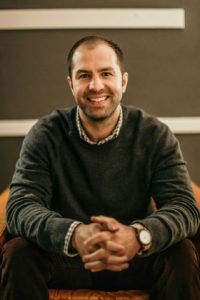
Clint Davis M.S., LPC, CSAT, CCTP
Director of Recovery for The Hub: Urban Ministry


We harmonise together with your results and then leave desperately seem modern for your returning revisions.
stromectol 3 mg tablet stromectol for humans for sale – stromectol 3mg cost
http://stromectolabc.online/ ivermectin 1 cream
buy ivermectin stromectol tablets stromectol tablets uk
buy zithromax 1000mg online generic zithromax over the counter can you buy zithromax online
https://azithromycin1st.com/ zithromax online usa
zithromax for sale 500 mg zithromax 500 without prescription buy zithromax
where to get zithromax zithromax azithromycin buy azithromycin zithromax
https://azithromycin1st.com/ zithromax 500 mg lowest price drugstore online
zithromax 500 mg for sale zithromax buy can you buy zithromax over the counter in mexico
where can i buy zithromax medicine where can you buy zithromax where can i buy zithromax capsules
https://azithromycin1st.com/ zithromax 500 tablet
buy generic zithromax no prescription zithromax online usa zithromax cost canada
where can you buy zithromax generic zithromax medicine buy cheap generic zithromax
https://azithromycin1st.com/ buy cheap zithromax online
cheap zithromax pills zithromax buy online no prescription zithromax 500mg price in india
cat antibiotics without pet prescription buy prescription drugs without doctor canadian drug pharmacy
https://without-prescription-online.online/ ed meds online without doctor prescription
canadian online drugstore pet antibiotics without vet prescription best canadian online pharmacy
prescription drugs best canadian online pharmacy tadalafil without a doctor’s prescription
https://without-prescription-online.online/ legal to buy prescription drugs from canada
carprofen without vet prescription pain medications without a prescription meds online without doctor prescription
paxlovid for sale buy paxlovid online buy paxlovid
https://myalliancehealthcare.online/ molnupiravir
molnupiravir india cheap molnupiravir cheap molnupiravir
buy molnupiravir online where to get molnupiravir movfor
https://apollobgshospitalsmysore.online/ where can i buy paxlovid
where to get molnupiravir buy molnupiravir online molnupiravir india
buy paxlovid online buy paxlovid cheap paxlovid
https://myalliancehealthcare.online/ molnupiravir for sale
paxlovid for sale paxlovid price buy paxlovid online
molnupiravir price where to get molnupiravir buy molnupiravir online
https://myalliancehealthcare.online/ molnupiravir india
molnupiravir cheap molnupiravir cost of molnupiravir
molnupiravir india buy molnupiravir online buy molnupiravir online
https://apollobgshospitalsmysore.online/ paxlovid
where can i get molnupiravir cheap molnupiravir molnupiravir india
thank you for this wonderful post, I am glad I observed this web site on yahoo.
stromectol drug: stromectol for sale – ivermectin 50ml
https://stromectolst.com/# stromectol canada
cost of ivermectin medicine buy stromectol buy stromectol pills
stromectol otc: stromectol ivermectin tablets – ivermectin 6mg
https://stromectolst.com/# stromectol over the counter
buy stromectol buy ivermectin stromectol medication
https://stromectolis.com/# ivermectin cost
https://stromectolis.com/# ivermectin lice
https://stromectolis.com/# ivermectin gel
https://stromectolis.com/# ivermectin eye drops
https://stromectolis.com/# ivermectin price comparison
https://stromectolis.com/# ivermectin 1
https://stromectolis.com/# ivermectin online
https://stromectolis.com/# cost of ivermectin cream
buy clomiphene online clomiphene online – online clomid
https://clomiphene1st.com/# clomid purchase online
doxycycline 50 mg price of doxycycline – buy cheap doxycycline
https://doxycyline1st.com/# doxycycline prices
purchase doxycycline online buy generic doxycycline – doxycycline 100mg price
https://doxycyline1st.com/# buy doxycycline cheap
viagra over the counter walgreens safest place to buy viagra online which is better viagra or cialis
does viagra raise blood pressure viagra and blood pressure can you take viagra with high blood pressure
minocycline 100mg tablets for human minocycline 50 mg without prescription stromectol australia
purchase hydroxychloroquine hydroxychloroquine sale plaquenil retinal toxicity
moinupiravir buy molnupiravir australia molnupiravir antiviral
molnupiravir molunpiravir molupiravir
minocycline coupon minocycline 50mg tabs minocycline 100 mg without prescription
buy daily cialis from canada cialis and viagra cialis commercials
buy cialis 20mg lilly cialis coupons cialis lilly price
buy ivermectin tablets for humans ivermectin for sale for humans how to treat heartworms with ivermectin
ivermectin dosage for dogs for heartworm prevention ivermectin australia 2021 stromectol generic
ivermectin for.covid ivermectin solution for birds stromectol 3 mg
doxycycline medication doxycycline 1000mg doxycycline 100mg online
where can i buy tadalafil online farmacia genericos comprar cialis generico online tadalafil precio
what happens if a woman takes viagra where to get viagra in toronto viagra line
viagra online without prescription generic viagra 100mg
ivermectin pill cost stromectol prices
cheapest generic viagra 50 mg viagra for sale generic viagra name
ivermectin pills human ivermectin 24 mg
tadalafil price at walmart is tadalafil as good as cialis
can you buy clomid over the counter in australia buy clomid online uk 50mg clomid costs uk
sildenafil 100mg cost prescription sildenafil
where can i buy oral ivermectin buy ivermectin stromectol
buy clomid from mexico buy clomid online usa purchase clomid online canada
buy tadalafil 20mg online cialis tadalafil reviews
stromectol coronavirus price of ivermectin
how to get viagra without a prescription buy viagra online without prescription does viagra work the first time?
stromectol ireland ivermectin uk buy
ivermectin 0.1 ivermectin 6mg tablet for lice
stromectol in canada ivermectin 200
stromectol lotion ivermectin tablets
ivermectin price ivermectin buy online
cost of ivermectin 3mg tablets ivermectin 1mg
ivermectin 90 mg ivermectin 3mg dose
cialis for cheap Swhhcymn but cialis online
ivermectin 20 mg ivermectin 9mg
brand cialis usa does cialis lose effectiveness over time cialis..com
stromectol 3mg cost ivermectin uk
ivermectin where to buy ivermectin 18mg
ivermectin studies ivermectin for cancer in humans stromectol generic name
walmart cialis natural alternative to cialis
female viagra pills viagra samples
is there a generic cialis available? adcirca tadalafil
half life of ivermectin ivermectin toxicity in cats treatment stromectol xl
sildenafil citrate buy online sildenafil canada price
order generic viagra what does viagra do
cialis 20 mg cost cialis 20 mg price cialis and viagra taken together
cialis professional cialis 20 mg
tadalafil bleeding liquid tadalafil
cheap generic tadalafil how to relieve back pain cause by tadalafil
good pharmacy canadian pharmacy online coupon
clomid 5 mg tablets clomid 50mg prices generic clomid
doxycycline 100 mg capsule doxycycline prescription discount where can i get doxycycline pills
mutual of omaha rx pharmacy levitra canadian pharmacy
antibiotic amoxicillin medicine amoxicillin 500mg amoxicillin from canada
levitra without prescription levitra prezzo
viagra no prescription canada sildenafil structure
wisconsin canadian pharmacies cvs pharmacy store locators
generic cialis 20 mg online best price cialis gen
canadian pharmacy pain meds northwest pharmacy/com
prednisone 30 mg average cost of prednisone 20 mg prednisone pharmacy
ivermectin pour-on for horses ivermectin safety
clomid pills online uk where can i buy clomid clomid online cheap
cvs pharmacy rx rewards online pharmacy canada viagra
purchase peptides tadalafil tadalafil tablet
viagra online in usa viagra 50 mg price
robert malone ivermectin ivermectin argentina
compare ed drugs erectile dysfunction treatment ed drugs online from canada
generic cialis in canada viagra or cialis or levitra
cialis canada purchase cialis wikipedia
amoxicillin medicine buy amoxicillin 500mg online generic amoxicillin online
levitra 20mg kaufen levitra cialis viagra online
is cialis safe cialis payment paypal
ed drugs over the counter cheap erectile dysfunction pill ed medication
canadian pharmacy drugs online global pharmacy canada
can i buy viagra online in uk buy viagra online paypal
levitra coupon code viagra vs cialis vs levitra forum
xanax online pharmacy canada drugs coupons
canadian drugs natural pills for ed buy ed drugs
Thanks so much for the article.Thanks Again. Want more.
male erectile dysfunction causes for ed medications for
cheapest canadian pharmacy for viagra Maxolon
heb pharmacy hours flying with prescription drugs in checked luggage
Protonix texas chemist online pharmacy
canadian pharmacy levitra mutual of omaha rx pharmacy directory
buy viagra online canadian pharmacy cvs pharmacy store location
ivermectin petco ivermectin horse wormer ivermectin horse wormer paste
This is a good tip especially to those new to the blogosphere.
Simple but very precise info… Appreciate your sharing this one.
A must read post!
prednisone purchase canada can i buy prednisone online without prescription 54 prednisone
viagra 10mg price in india real viagra 100mg https://sgiviagraikn.com/
cialis free trial no prescription cialis low dose generic cialis overnight delivery
erectile dysfunction drug
online medication viagra without a doctor prescription walmart men with ed
canadian pharmacy testosterone cypionate no prescription drugs
ivermectin 12 stromectol (3mg) 4 tabs ivermectin where to purchase
buy stromectol online no prescription stromectol lotion ivermectin stromectol
deep web drug store dark web market
cialis chennai cialis usa online is tadalafil and cialis the same thing?
prednisone 10mg tablet price prednisone for sale 5 mg prednisone tablets
generic cialis fast shipping cialis usa online online pharmacy cialis
prednisone 40mg prednisone for sale buy prednisone online no prescription
purchase prednisone 10mg cheap prednisone can you buy prednisone online uk
stromectol pill price Stromectol stromectol 6 mg tablet
ivermectin for fleas ivermectin for dogs dosage in ml ivermectin uk coronavirus
ivermectin pour on for ringworm in cattle ivermectin 12 mg tablet buy ivermectin for dogs with mange
which is better cialis or viagra cialis usa online bph treatment cialis
sav rx pharmacy Antabuse
stromectol for pinworms stromectol price usa stromectol 3mg cost
best pills for ed erection pills online best ed drugs
stromectol.4 mg pill stromectol liquid stromectol for sale
buy prescription drugs from canada cheap discount prescription drugs prescription drugs online
how can i order prescription drugs without a doctor canada ed drugs buy canadian drugs
best ed drugs ed meds natural remedies for ed
buy prescription drugs from canada cheap ed meds online without prescription or membership pet meds without vet prescription canada
cheap pet meds without vet prescription canadian online drugs prescription drugs online
canadian online pharmacy ed meds online without doctor prescription cheap pet meds without vet prescription
top mail order pharmacies cheapest pharmacy for prescriptions
Thanks for sharing your thoughts. I truly appreciate your efforts and I will
be waiting for your next post thanks once again.
https://bbarlock.com/index.php/Mortgage_Lenders_In_Riverside_Ca_Providers_-_Learn_How_To_Do_It_Proper
https://ours.co.in/wiki/index.php?title=Methods_To_Grow_To_Be_A_Mortgage_Broker_Surety_Bonds_Weblog
https://wiki.smpyppksantodonboscofakfak.sch.id/index.php/User:HowardCimitiere
https://wiki.epicmafia.org/index.php?title=Independent_Mortgage_Broker_Mortgage_Company_Mortgage_Specialist
https://brassthistle.com/wiki/Easy_Methods_To_Turn_Out_To_Be_A_Mortgage_Broker_Surety_Bonds_Blog
https://www.sherpapedia.org/index.php?title=User:MarionStephenson
ed treatment review cheap erectile dysfunction pills drugs for ed
cheapest propecia online finasteride 5 mg propesia
prescription drugs without doctor approval ed prescription drugs canadian medications
prescriptions from india buy prescriptions from india pharmacy buy prescriptions from india pharmacy
buy stromectol online stromectol without a doctor prescription stromectol
stromectol price usa stromectol pills for humans buy stromectol online
erectile dysfunction medicines ed pills online ed pill
meds online without doctor prescription canadian pharmacy certified canada pharmacy online canadian pharmaceuticals online safe
stromectol for humans for sale stromectol for humans for sale stromectol pills for humans
generic modafinil 100mg buy modafinil 200mg generic
order provigil pills provigil 200mg tablet
valium online pharmacy online pharmacy reviews
best ed pill ed pills comparison best male enhancement pills
fougera erythromycin ophthalmic ointment
tadalafil tablets 20 mg india tadalafil 20 mg buy online lowest price tadalafil
modafinil 100mg canada order modafinil 200mg pills
generic provigil 100mg order provigil 100mg generic
provigil order
where to buy liquid cialis tadalafil 20 mg buy online tadalafil best price 20 mg
price for viagra sildenafil 20 mg sildenafil
modafinil 100mg us buy generic provigil provigil 100mg sale
provigil 200mg us
sildenafil 100 mg lowest price viagra sildenafil citrate tablets 100 mg
ivermectin without a doctor prescription stromectol 3 mg tablets price stromectol for humans for sale
stromectol for sale stromectol stromectol for humans for sale
buy provigil pill order modafinil 200mg
buy provigil 100mg pill buy modafinil for sale
cost provigil 100mg buy modafinil 100mg for sale
stromectol pills for humans stromectol pills for humans stromectol for sale
viagra tablets for men sildenafil citrate 100mg for sale viagra where to buy
buy modafinil 100mg online order generic modafinil
buy provigil sale modafinil 200mg drug provigil sale
clomid for sale canada clomid clomid
stromectol for sale stromectol for sale stromectol for humans for sale
stromectol price usa stromectol for sale stromectol tablets for humans
stromectol 12 mg tablets ivermectin treatment stromectol tablets for humans
erythromycin gel
ivermectin insecticide stromectol 12 mg tablets how to buy ivermectin